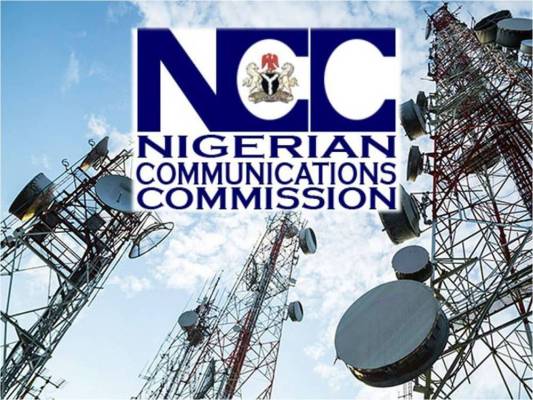News
Harmonised short codes: IT experts, Ibadan residents hail NCC, seek more awareness

Some residents of Ibadan, the Oyo State capital, have applauded Nigerian Communications Commission (NCC) over the introduction of telecommunications harmonised short codes.
Our correspondent reports that the residents, including IT experts, however, called for deeper sensitisation on the harmonized short codes, particularly for people at the grassroots, to ensure
seamless transition.
They made the submissions in separate interviews with our correspondent on Monday in Ibadan.
One of the residents, Dr Akin Oyeleye, described the implementation of the harmonised short codes as a welcome development.
Oyeleye, who is the state Chairman of Nigeria Computer Society (NCS), said that the implementation would put a total end to irregularities in loading of airtime and other services on service providers’ platforms.
According to him, having uniform short codes across different platforms will save Nigerians, especially older people, from memorising different codes for same task from different service
providers.
“The harmonised short codes by NCC will ease inter-operability across telecoms platforms, simplify recharging process and other services,” Oyeleye said.
Also Mrs Adebimpe Badmus, who deals in clothing at Bola Ige International Market, Ibadan, said she was not aware of the harmonized short codes on telecoms networks.
Although Badmus applauded the development, she, however, urged NCC to carry out more awareness, especially for people at the grassroots.
“It is good; at least, the confusion many short codes use to create will be over, but it will take time for people, particularly the uneducated ones, to adapt to the new development.
“I believe most of our people, especially those in rural and underserved areas, are not aware of this development too.
“I want the government to do more enlightenment on the codes until an average Nigerian will get used to it,” she said.
Miss Bolanle Adeniran, a recharge card seller, told our correspondent that she had been educating and helping her costumers who were not aware of the new codes.
Adeniran said, “Many customers, who cannot read and understand pop up message instructing them to use harmonised short codes, have been coming to complain that the recharge pin has issues.”
She expressed optimism that with time, Nigerians would adapt to the new codes.
Also speaking, a student of University of Ibadan (UI), Mr Ibrahim Ali, said that he had resorted to using his bank app to recharge his three phone numbers, as he could not master the code that worked for any particular service.
Ali, however, commended NCC for the introduction of the harmonised short codes.
Our correspondent reports that while 300 works as the harmonised code for Call Centre/Help Desk on all mobile networks, 301 works for Voice Mail Deposit and 302 for Voice Mail Retrieval.
Others include: 303 for Borrow Services; 305 for STOP Service; 310 for Check Balance and 311 for Credit Recharge.
Also, the common code for Data Plan across networks is now 312, while 321 is for Share Services and 323 for Data Plan Balance.
Code 996 is now for Verification of Subscriber Identity Module Registration/NIN-SIM Linkage.
While code 2442 is retained for Do-Not-Disturb unsolicited messaging complaint management, 3232 is also retained for Porting Services, otherwise known as Mobile Number Portability.
Our correspondent also reports that NCC had directed the mobile network operators to commence implementation of the approved harmonised codes, starting
from May 17.




 Davido's Net Worth & Lifestyle
Davido's Net Worth & Lifestyle 
